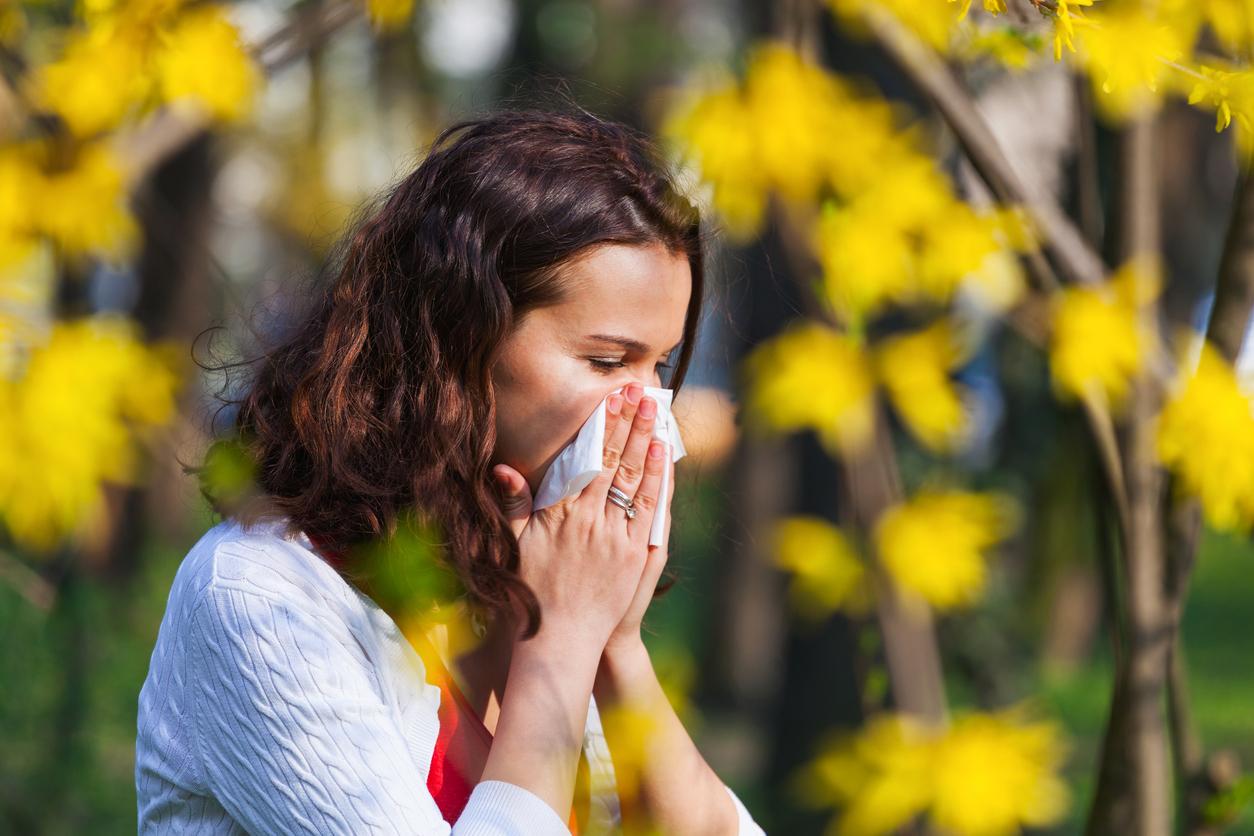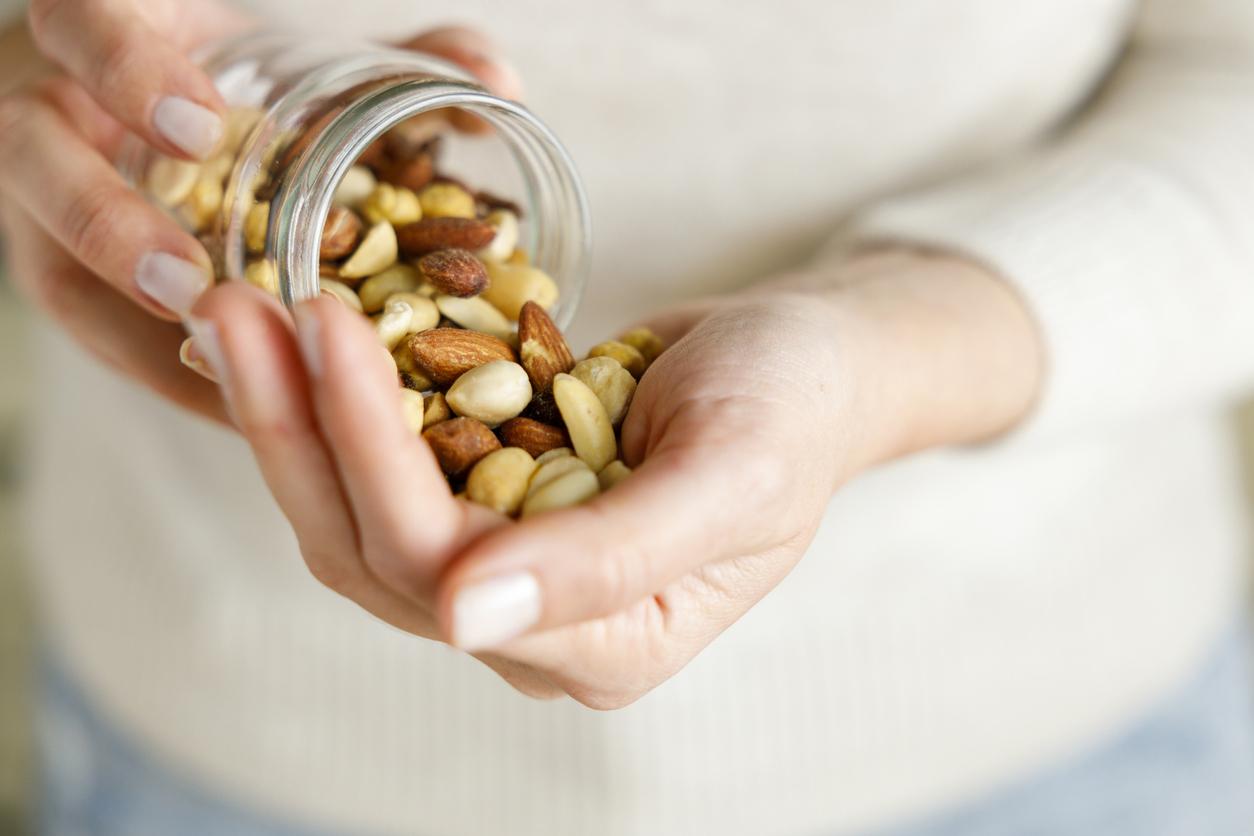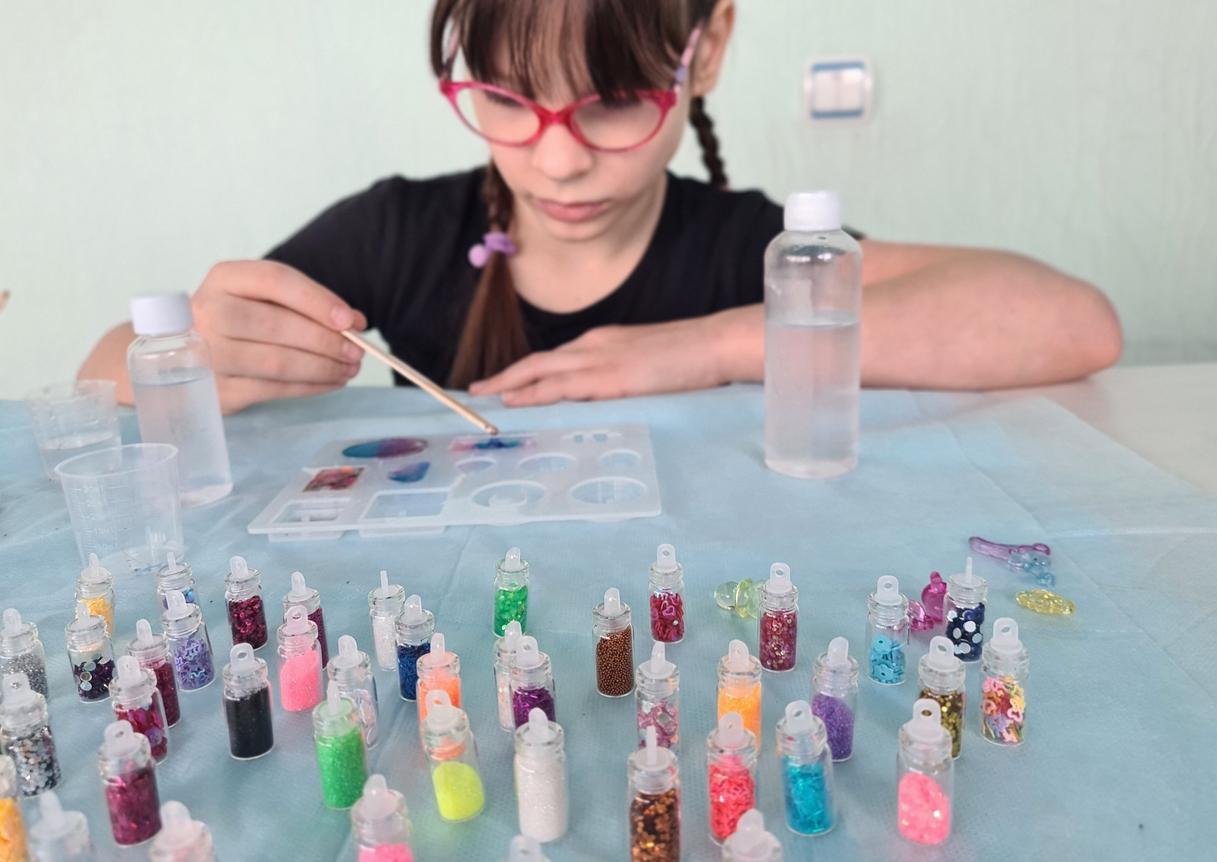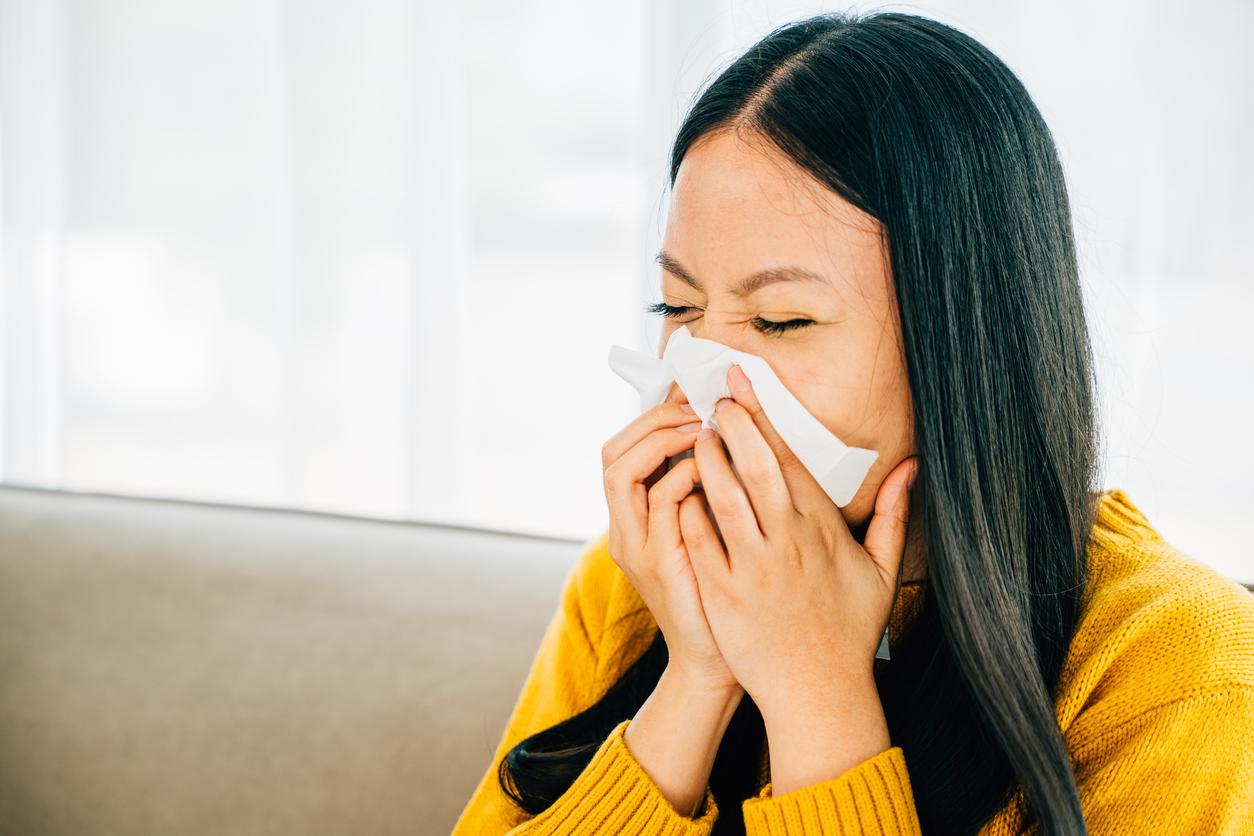How to explain seasonal allergies?
It all starts with a first ineffectual contact with the allergen – in this case, the pollen. It’s awareness. Then, during the next exposure, the immune system goes into overdrive in the face of a substance that it has now identified as an intruder. Antibodies (type E immunoglobulins) are activated and produce chemical mediators (histamine) which trigger inflammation in the airways. It’s an allergic crisis. This reaction gives rise to various symptoms: sneezing, coughing, conjunctivitis, red eyes, itching, etc.
Faced with this type of reaction, two kinds of treatment are generally necessary: desensitization, the only treatment that can cure the allergy in the long term, and drug treatments for crisis, like antihistamines and topical corticosteroids and /or general, which unfortunately sometimes have side effects. “The former can promote drowsiness, constipation or dry mucous membranes, while the latter present risks of superinfection or nasal polyps in particular”, recalls Dr. François Mulet, homeopathic doctor. This is why it is always interesting to have a complementary approach to calm crises and anticipate them.” And in this area, there are now varied practices without side effects that are completely compatible with conventional treatments. All you have to do is find the one that really suits you.
How to protect yourself from pollen on a daily basis?
Simple gestures can reduce the concentration of pollen inside, which will reduce the severity of respiratory reactions.
- Check the weather. Sunny windy days are conducive to the dispersal of pollen.
- Change clothes when you return from your walks. And avoid drying clothes outdoors.
- Rinse your hair before going to bed. This prevents pollen from settling on the pillow.
- Do not sleep with the window open. Especially if it’s close to the bed.
- Ventilate your room rather in the morning. There is less pollen in the air.
- In a car, drive with the windows closed.
- Avoid going to the swimming pool. Chlorine attacks the mucous membranes of the nose and eyes.
And before going for a walk, it is always useful to find out about the activity of pollen in his region with the National Aerobiological Surveillance Network (RNSA), which updates daily on its website forecasts of allergic risk in the different regions of France.
In addition to these tips, alternative medicine can help relieve and better live this trying period, in particular plants, but also essential oils or even homeopathy.
Thermal medicine for long-term action
Hydrotherapy can also be indicated against seasonal allergies, especially if your situation requires special medical monitoring (children or adults with asthma, for example). Its great advantage: “Thermal waters are naturally rich in minerals and can provide valuable trace elements to treat certain infections of the respiratory tract”, recalls Dr Didier Gleizes, medical adviser to the Chaînes thermales du soleil.
Thus, a silico-arsenical thermal water, such as can be found in Auvergne, has anti-inflammatory, anti-radical and immunostimulant properties useful for the nasal mucous membranes, damaged by allergy. As for the sulfur waters, which have their source in particular in the Pyrenees, “they have an anti-infectious, fluidifying and regenerating action on the mucous membranes”, lists our expert. In addition, the temperature of these waters, close to that of the body, facilitates local care. On the program: nose washes, gargles to clear the upper respiratory tract, and many others. But for Dr. Gleizes, spa treatment goes far beyond treatments: it is part of a holistic approach.
“Changes in the climatic environment (in places of cure free of pollution or allergens) and psychological (removal from the usual tensions) are conducive to the well-being of allergy sufferers. » Result: the curist feels better and learns to take care of himself. Ultimately, drug consumption and hospitalizations in the event of a serious allergy are reduced.
>> In practice: the thermal treatment is based on a targeted cure of 18 days each year for at least three years. A few resorts offering approved “respiratory tract” cures: Amélie-les-Bains, Ax-les-Thermes, Vernet-les-Bains, Le Mont-Doré, etc. Treatments are covered on prescription by Health Insurance (65% ) and complementary health insurance.
Read also :
- The best foods to fight pollen allergy
- Hay fever: I go to the pharmacist or the allergist?
- Covid-19 or allergy: how to tell the difference?
- Allergic rhinitis: 3 things not to do
- Trace elements useful when you are allergic to pollen
- THE natural remedies to relieve pollen allergy
- Desensitization: for whom? how ?

























